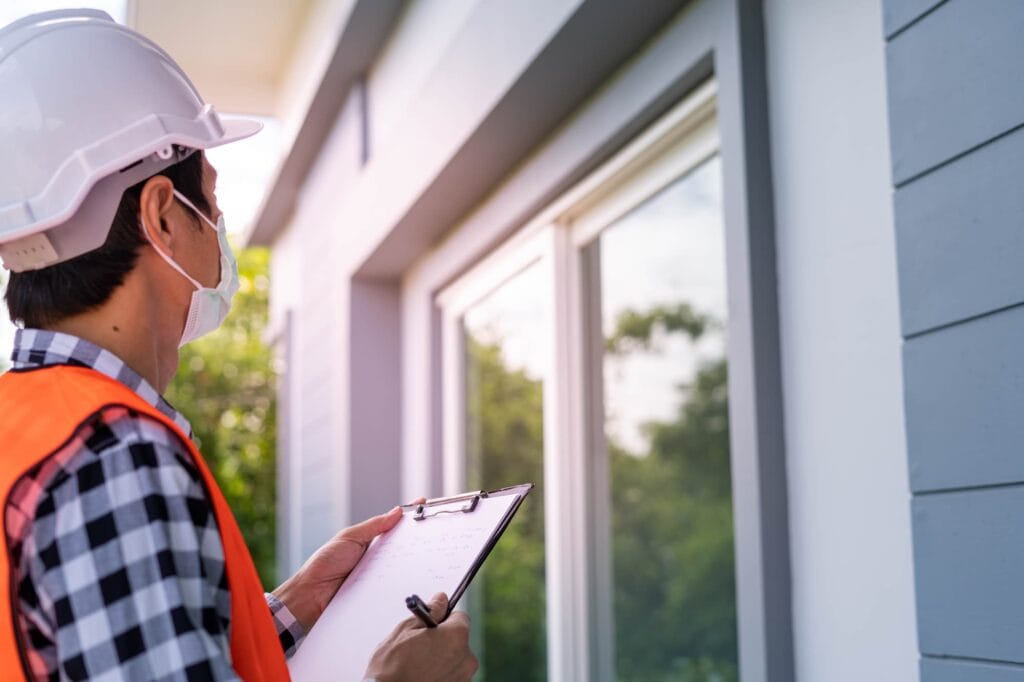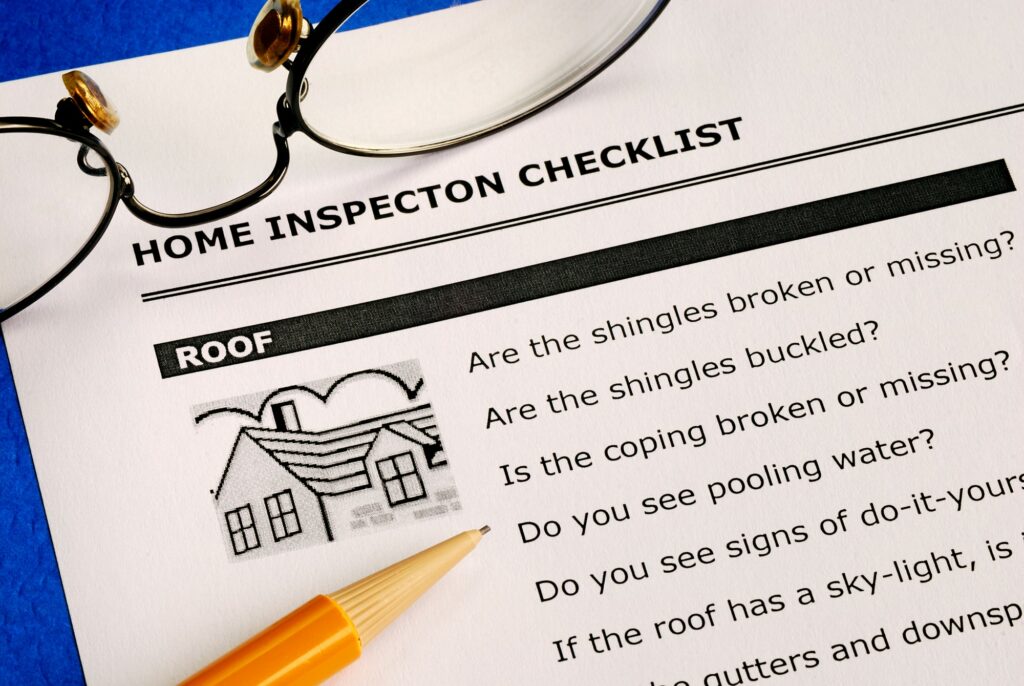So you’re in the market for a new home—congratulations! Buying a house is one of the biggest purchases you’ll ever make.
It’s exciting, but let’s face it, it’s also a little nerve-wracking. The last thing you want is to move into your dream home only to find out it’s a money pit.
That’s where a home inspection comes in, a step that can be as crucial as finding the right real estate agent or securing the best mortgage rate.
When you’re making such a significant investment, you absolutely need to know what you’re getting into.
In this article, we’ll dive deep into the world of home inspections. We’ll discuss why they’re vital, what they cover, and why you should never, ever skip this part of the buying process.
11 Reasons Why You Should Never Skip a Home Inspection

1. Provides a Comprehensive Assessment of the Property’s Conditions
A professional home inspector examines everything from the roof down to the foundation. They evaluate the condition of major systems like electrical, plumbing, and air conditioning.
The inspection also covers crucial areas like the crawl space, the electrical panel, and even sewer lines, if applicable.
Once the inspection is complete, you’ll receive an inspection report that details the state of the property. This isn’t just a casual look-over.
This is an evaluation that can provide a full picture of the home’s structure and systems, which your real estate agent might not be equipped to offer.
2. Identifies Potential Issues or Hidden Defects
You might have eagle eyes, but even the most discerning buyer can overlook potential issues during a quick viewing. A professional home inspector, however, knows exactly where to look for hidden defects.
Imagine finalizing your purchase price, only to move in and find that the air conditioner is faulty, costing you thousands in repair costs.
Or even worse, discovering foundation issues that could put the entire structure at risk. An inspection can identify such major issues, as well as minor issues that could become major problems down the line.
3. Helps Buyers Make Informed Decisions
The inspection report lays out the condition of the property in black and white, allowing you to make a wise investment decision.
Whether you choose to move forward with the purchase or even walk away from the deal, you’re doing so with a full understanding of what you’re getting into.
Sometimes, the inspection may reveal that the home needs major repairs. In such cases, you have the power to negotiate with the seller to either fix the issues or adjust the purchase price accordingly.
This is what’s known as an inspection contingency in the real estate world, and it can be a lifesaver.
4. Avoids Unexpected Expenses and Safety Risks
One of the biggest nightmares for a new homeowner is unexpected costs. Sure, you’ve budgeted for your mortgage, utilities, and even some new furniture, but have you budgeted for a new roof or plumbing overhaul?
An inspection can flag these potential costly repairs before you sign the dotted line. By identifying problems early, you have a chance to either negotiate the repair costs with the seller or walk away from a money pit.
Besides the financial aspect, there’s also the issue of safety. Faulty electrical systems, gas leaks, or even poorly installed handrails can be dangerous. An inspection can uncover these safety issues, giving you the chance to address them before they become hazardous for you or your family.
5. Provides an Opportunity for Negotiation
After receiving the inspection report, you’re in a stronger position to negotiate. Whether it’s asking the seller to fix the issues or adjusting the purchase price to reflect the cost of repairs, you have options.
This step in the buying process is often referred to as the inspection contingency. It means that your offer is conditional on the home passing an inspection to your satisfaction.
If major issues are found, you’re not locked into a deal that could be detrimental to you in the long run.
6. Assesses Functionality and Safety of Systems
A standard home inspection is quite comprehensive. Inspectors look at major systems. They assess the following for their functionality and safety:
- Electrical wiring
- Plumbing systems
- Air conditioning
- Heating
They’ll check if the electrical panel is up to code if the water pressure is adequate, and if the air conditioner is working efficiently. Any red flags will be included in the detailed report.
This report will give you insights that go beyond aesthetic appeal and into the nuts and bolts of the property.
7. Helps Buyers Understand Long-Term Maintenance Needs
Have you ever heard the saying, “An ounce of prevention is worth a pound of cure?”A good inspection report can serve as a maintenance roadmap for the years to come. It can highlight less urgent issues that might require attention in the near future.
Perhaps the water heater is aging, or the roof will need replacing in a few years. Knowing these things upfront can help you budget for future expenses and avoid nasty surprises down the line.
8. Offers Peace of Mind and Confidence in the Purchase Decision
Let’s face it: buying a home isn’t just a financial decision. It’s an emotional one, too. And nothing kills the joy of a new home faster than unexpected issues popping up after you’ve moved in.
A thorough inspection can offer you peace of mind, letting you sleep better at night knowing you’ve made a sound decision. Sure, no home is perfect, but knowing the imperfections before you buy can give you confidence in your purchase decision.
9. Uncovers Issues That May Affect Property Value and Suitability
You might love the home now, but what about its long-term prospects? Hidden issues such as water damage, foundation issues, or an outdated electrical system can be a drag on your property’s value when it comes time to sell.
Understanding these during the inspection process can help you negotiate a better purchase price. Most importantly, knowing this way ahead can prevent a poor investment in the first place.
Plus, if you’re buying a home with specific plans in mind, knowing about potential issues upfront can help you assess the property’s suitability.
10. Assists With Insurance and Financing Requirements
Did you know that a positive inspection report can also make your life easier when it comes to securing homeowners insurance or a mortgage?
Some insurance companies require a detailed inspection report before they offer coverage. And let’s not forget about mortgage lenders; they want to be sure their investment is sound, too.
A home that’s in great condition is less of a risk for both insurers and lenders.
11. Allows Buyers to Prioritize Repairs and Plan for Future Maintenance
An inspection doesn’t just give you a snapshot of your potential new home; it can also serve as a to-do list.
You’ll know what needs fixing right away, what can wait a bit, and what you’ll need to keep an eye on over the coming years.
This allows you to prioritize repairs and set a budget for future home maintenance. This makes you more prepared and less likely to be caught off guard by sudden expenses.
What’s Included in a Home Inspection?

So, you’re convinced that a home inspection is essential, but what exactly does it entail? A standard home inspection is quite thorough and usually includes an evaluation of the following:
- Roof and Attic: Inspectors look for signs of leaks, water damage, and the condition of the shingles.
- Structural Elements: This includes walls, ceilings, floors, and the foundation. Any foundation cracks or apparent shifts in the structure will be noted.
- Exterior: The inspector will assess doors, windows, and siding, as well as drainage systems, to make sure water is moving away from the home.
- Plumbing Systems: Expect a close look at pipes, drains, water heaters, and water pressure.
- Electrical Systems: This covers electrical panels and outlets. It also covers the condition of the wiring throughout the home.
- Heating and Cooling Systems: The inspector will check the age and condition of the furnace, air conditioning unit, and ductwork.
- Bathrooms and Kitchen: The focus here is on the plumbing. However, the inspector will also check that all appliances are functioning correctly.
- General Interior: This can include windows, doors, floors, and stairways. Basically, all the interior components you interact with daily.
What’s Not Included in a Home Inspection?
While a home inspection is comprehensive, it’s important to note that it has its limitations. A standard home inspection is a visual inspection, meaning if a problem is hidden behind walls or under flooring, it may not be detected. Here are some areas that are generally not covered:
- Pest Infestations: While an inspector might note signs of a pest problem, a detailed pest inspection is usually a separate service.
- Toxic Materials: Asbestos, mould, and lead paint are generally not covered unless requested.
- Sewer Lines: While some inspectors might give it a cursory look, a full evaluation usually requires a separate inspection.
- Swimming Pools: Unless it’s included in your contract, pools and spas are usually not part of a standard inspection.
- Sprinkler Systems: These are often not included but can be vital in certain areas prone to fires.
Why You Will Need Professional Help in Home Inspection
You might be tempted to conduct your own inspection or have a handy friend take a look, but this is one area where professional help is crucial.
A certified home inspector has been trained to spot issues that the average person might overlook. Their expertise can cover a wide range of home issues. It includes electrical wiring and plumbing systems to the subtleties of structural issues.
You’re not just paying for a service. You’re paying for peace of mind. When a professional home inspector gives your potential new home a clean bill of health, you can be much more confident in your purchase. Conversely, if they find issues, you’ll be grateful you found out before it was too late.
Skipping a professional inspection can lead to costly mistakes. Imagine discovering foundation cracks that require major repairs or electrical systems that are not up to code. These are not just minor issues; they can lead to significant financial strain and even pose safety risks.
Why Skipping a Home Inspection is a High-Stakes Gamble

Buying a home is one of the most significant investments most people will ever make. Skipping a home inspection can turn this dream-come-true into a nightmare.
Knowing that a professional has examined the home can give you the security that comes with knowing you’re making a sound decision. It can affect your insurance, your mortgage, and even your future selling price.
So, the next time you’re in the thick of the buying process, don’t treat the home inspection as an optional add-on. It’s a necessity and one that offers far more than it costs.
And there you have it! A comprehensive look at why home inspections are essential for anyone looking to make the biggest purchase of their lives.
Ready to take the next step in your home-buying journey with complete confidence? The Bill Parnaby Team is here to guide you through every stage of the process, including the crucial home inspection.
With our expertise as realtors and commitment to your satisfaction, you’re not just buying a home—you’re securing peace of mind. Contact the Bill Parnaby Team today, and let’s turn your dream home into your actual home!





